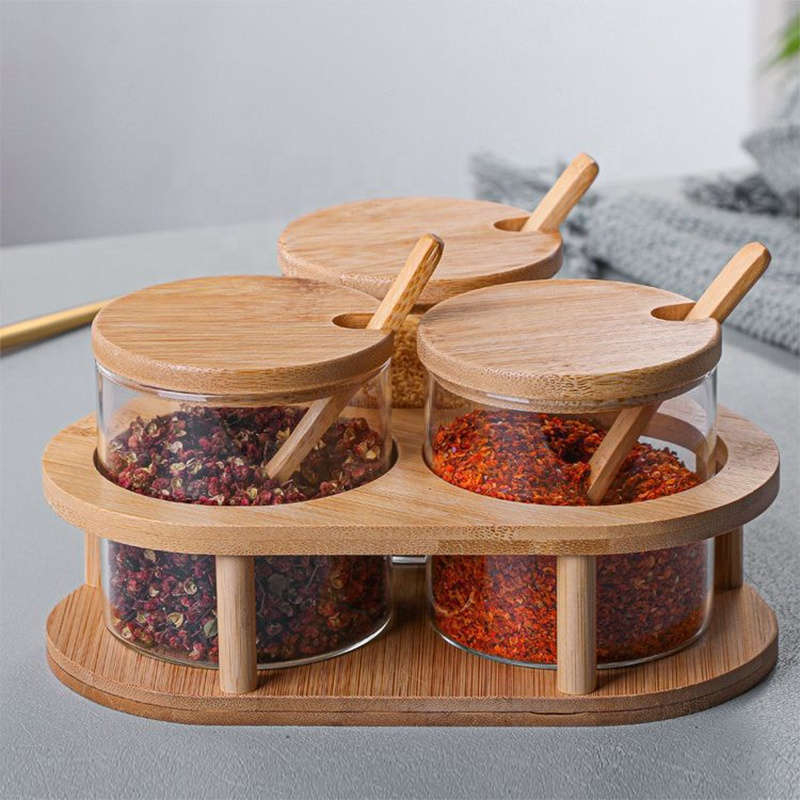In the realm of kitchen organization and food preservation, glass jars have emerged as a versatile and sustainable solution. From storing dry goods to preserving homemade delicacies, these transparent containers offer a plethora of benefits that make them indispensable in any well-equipped kitchen. This comprehensive guide will delve into the world of food glass jars, exploring their advantages, types, uses, and best practices for storage and maintenance.
Advantages of Glass Jars
1. Airtight Seal: Glass jars feature airtight lids that effectively prevent air and moisture from entering, ensuring the freshness and longevity of stored items.
2. Transparency: The transparency of jars allows for easy identification of contents, eliminating the need for constant labeling.
3. Non-Toxic: Unlike plastic containers, jars are non-toxic and do not leach harmful chemicals into food, making them a safe choice for storing edibles.
4. Durability: Glass jars are highly durable and can withstand repeated use without breaking or cracking, making them a long-lasting investment.
5. Versatility: Food jars can be used for a wide range of applications, from storing dry goods to preserving liquids and homemade delicacies.
Types of Food Glass Jars
The world of food jars offers a diverse range of options to cater to various storage needs. Here are some of the most common types:
1. Mason Jars: These iconic jars are characterized by their wide mouths and two-piece lids, making them ideal for canning and preserving.
2. Ball Jars: Similar to Mason jars, Ball jars are known for their wide mouths and airtight seals, making them suitable for storing both dry and wet goods.
3. Kerr Jars: Kerr jars feature a unique continuous thread design on their lids, providing a secure and airtight seal. They are commonly used for canning and preserving.
4. Weck Jars: These European-style jars have a distinctive rubber gasket and metal clamp lid, ensuring an airtight seal. They are ideal for storing liquids and fermented foods.
5. Kilner Jars: Kilner jars are known for their elegant design and airtight seals. They are available in various sizes and shapes, making them suitable for storing a variety of items.
Uses of Food Jars
The versatility of food glass jars extends beyond their traditional use in canning and preserving. Here are some innovative ways to utilize these containers:
1. Dry Goods Storage: Glass jars are perfect for storing dry goods such as flour, sugar, rice, pasta, and beans. Their airtight seals prevent moisture and pests from entering, ensuring the freshness and longevity of these ingredients.
2. Liquid Storage: Glass jars can also be used to store liquids such as juices, smoothies, soups, and sauces. Their airtight lids prevent spills and leaks, making them ideal for transporting and storing liquids.
3. Homemade Delicacies: Glass jars are an excellent choice for preserving homemade delicacies such as jams, jellies, pickles, and fermented foods. Their airtight seals prevent spoilage and preserve the flavors of these culinary creations.
4. Spice Storage: Glass jars are perfect for storing spices and herbs. Their airtight seals prevent moisture from entering, preserving the potency and aroma of these essential ingredients.
5. Decorative Purposes: Food glass jars can also be used for decorative purposes. Their transparency and aesthetic appeal make them suitable for displaying flowers, candles, and other decorative items.
Best Practices for Storage and Maintenance
To ensure the longevity and effectiveness of food glass jars, it is essential to follow these best practices for storage and maintenance:
1. Cleaning: Before using glass jars for the first time, it is important to thoroughly wash them with hot soapy water and rinse them well.
2. Sterilization: For canning and preserving, glass jars should be sterilized by boiling them in water for 10-15 minutes.
3. Drying: After cleaning or sterilizing, glass jars should be thoroughly dried before use to prevent mold and bacteria growth.
4. Airtight Seal: Always ensure that the lids are securely fastened to create an airtight seal. This prevents air and moisture from entering and compromising the contents.
5. Labeling: Clearly label glass jars with the contents and date of storage to facilitate easy identification and prevent confusion.
Conclusion
Food glass jars have become an indispensable tool in the modern kitchen, offering a versatile and sustainable solution for food storage. Their airtight seals, transparency, durability, and non-toxicity make them an excellent choice for preserving the freshness and quality of a wide range of food items. By following best practices for storage and maintenance, you can ensure that your food glass jars remain effective and aesthetically pleasing for years to come. Embrace the benefits of these versatile containers and revolutionize your kitchen food storage practices today.

Landy is established in 2007. we engaged in the research development and sale of wooden products. Our main products: wooden box, wooden tray, wooden decoration,wooden shelf, wooden pet products ,wood photo frame and so on. Different machines are equipped with in our factory to meet different orders’ requirements.
Get a quote or OEM service, Please contact us: WhatsApp And Phone: +8615166867527 or Email: crystal@ytlandy.com
